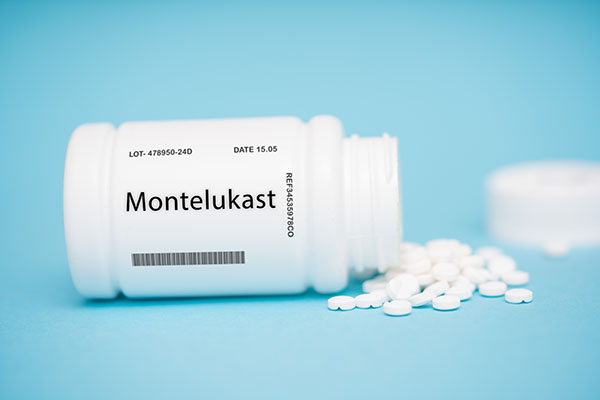U.K. issues urgent warnings about horrifying psychiatric side effects of popular allergy medication
06/03/2024 / By Cassie B.

The U.K. has issued an urgent warning about one of the most popular allergy and asthma medications on the market due to its potential to cause neuropsychiatric issues ranging from nightmares and depression to thoughts of suicide.
The U.K. government’s Medicines and Healthcare Products Regulatory Agency (MHRA) recently announced that it will be adding stronger warnings to the informational insert in the asthma and allergy drug Montelukast, the active ingredient in Singulair, in the wake of ongoing reports from patients and caregivers alike about its neuropsychiatric risks. A review conducted by the MHRA found that many patients are unaware of these dangers.
The drug has already been associated with side effects such as flu-like symptoms, stomach pains, coughs and headaches. Now, warnings on the box will point to risks such as depression, hallucinations, insomnia, attention and memory issues, agitation, anxiousness, sleep disturbances and suicidal behavior.
It is believed that the drug’s inhibition of the GPR17 receptor on glial cells and neurons could be related to these effects as it can disrupt normal brain functioning.
FDA issued black box warning for montelukast
The U.K. joins more than a dozen other countries that have issued similar warnings about the drug. In 2020, the FDA issued a boxed warning for it, which is the highest type of safety warning a medication can receive. The agency also mandated that every patient taking the drug receive a medication guide that explains how to take the drug safely and its potential risks. The agency also emphasized in a press release that there are several other medications that can effectively treat allergies without these side effects.
However, in February, New York Attorney General Letitia James asked the FDA to take stronger action on the drug, pointing to a rise in mental health incidents despite the black box warning and calling for greater awareness and better safeguards to protect young people who use the medication. Data shows that children are more susceptible to the neuropsychiatric dangers of the drug than adults.
Unfortunately, many of the people who take the drug are younger. Because it can help to manage asthma and allergies in pill form, it is often given to children and the elderly who struggle to use inhalers properly. In fact, it is even available in powders that can be mixed with food or drinks and chewable tablets, making it easily accessible to a range of patients.
Montelukast works by targeting key elements in inflammatory responses to allergens known as leukotrienes. These are what tighten the muscles in the airway and increase the production of mucus, which can manifest as tightness in the throat and coughing; blocking these chemicals can help to alleviate these symptoms.
The drug has been shown in studies to cross the blood-brain barrier, and it is known to interact with the essential brain antioxidant glutathione.
According to a recent review of the FDA’s adverse events reporting system carried out by The Epoch Times, there were nearly 35,000 reports of adverse events related to Montelukast, and more than 28,000 of them were considered severe. They note that more than 22 percent of the severe cases involve children younger than 17. More than 1,000 deaths have been linked to Montelukast.
Sadly, the black box warning has done little to deter doctors from prescribing the drug. In 2021, 31 million prescriptions for Montelukast were issued in the U.S. alone. Although the FDA advises people to only use the drug if other treatments, such as steroid nasal sprays, antihistamines and allergy shots, are not effective, numerous Americans are still taking the drug and putting themselves at risk of serious neuropsychiatric effects.
Sources for this article include:
Submit a correction >>
Tagged Under:
allergies, asthma, Big Pharma, brain damaged, brain function, brain health, depression, mental health, Mind, montelukast, pharmaceutical fraud, Prescription drugs, prescription warning, psychiatry, side effects, Singulair
This article may contain statements that reflect the opinion of the author
RECENT NEWS & ARTICLES
COPYRIGHT © 2017 BIG PHARMA NEWS




















